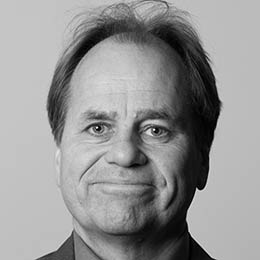Most people say, when prompted, that they are concerned about inequalities. But the degree of concern is highly variable, and the concern is not matched by a consensus about what, if anything, government should do.
A panellists’ introduction, by Orazio Attanasio, Paul Johnson and Robert Joyce
These beliefs and attitudes matter for designing policy. So some of the first tasks for the IFS Deaton Review of Inequalities, funded by the Nuffield Foundation, have been to commission two major surveys of current UK attitudes and further detailed studies of what is known about attitudes and their causes – including how these differ across countries – and to run focus groups involving dozens of people up and down the country to understand in detail how they think about inequalities.
Here we publish a wealth of new material which is the product of that work. A team from King’s College London (Rebecca Benson, Bobby Duffy, Rachel Hesketh and Kirstie Hewlett) have written a detailed study of the survey evidence on the UK public’s attitudes towards inequality. A team from Stockholm University and the Norwegian School of Economics (Ingvild Almås, Alexander W. Cappelen, Erik Sørensen and Bertil Tungodden) have written a paper studying how attitudes, drawing in particular on a remarkable endeavor that has measured attitudes in an innovative fashion across 60 countries. Professor Stefanie Stantcheva (Harvard) provides further deep insights using evidence from large-scale social economics surveys and experiments that have explored how people perceive, and reason about, inequalities and redistribution. And Ipsos MORI publish findings from in-depth focus group work and larger-scale survey work with the British public that they have undertaken with us.
We publish this material alongside the work of professional philosophers, who we engaged to delve deep into the question of why we should be concerned about inequality at all. We encourage interested readers to look at both sets of work, as the comparison between them is itself very interesting. For example, philosophers have tended to conclude that distinctions between inequalities arising from people’s own efforts and those arising from structural or environmental factors are difficult or impossible to use as the ultimate driver of public policy – and there are good reasons why they have come to that conclusion. But policy design must bear in mind that this distinction is highly salient to many people, as the work on public attitudes shows.
Overall, there are a few key overriding messages that we take from this body of work. The UK public express concerns about inequality, recognising that it can be problematic, but also feeling that a considerable degree of inequality is either inevitable or fair or both. Not surprisingly there is deep disagreement over what is fair and how much action should be taken to change outcomes. The public is very split on whether outcomes are driven primarily by environmental factors or by people’s own behaviour and motivations, and this appears to be closely associated with their overall level of concern about inequality. We know that in reality both environment and behaviour are important; this evidence on public attitudes further suggests that policy approaches are unlikely to garner widespread support without taking both seriously. Finally, people with different philosophical outlooks on inequality also tend to disagree over the brute facts: how high it is, how much policy currently does to address it, and so on. This contributes to a significant polarisation in perspectives on inequality. These sorts of varying perspectives on inequality are common to many other countries, but different societies do differ substantially in the balance of perspectives – both because they tend to have different degrees of aversion to inequality and to redistributive policy, and because they differ in their perceptions of the main causes of inequality.
Survey evidence on people’s attitudes presented by the King’s College London team shows that:
- A large and stable majority of people, around 80%, say they are worried about inequalities. But concern about inequality does not translate into widespread support for redistributive policy, at least through the direct means of taxation and income transfers. When asked about specific and less direct means of redistribution, people are more likely to express support: in particular, for the NHS and for funding of children from poorer families to go to university.
- The British population is fairly evenly split between those who broadly think that inequalities arise from people’s own efforts and abilities (who the authors call ‘individualists’), those who blame societal factors outside of individuals’ control (the ‘structuralists’) and a middle group who perceive strong elements of both. These modes of thinking are strongly related to policy views and outlooks about the future. Individualists are especially unlikely to support redistributive policies. Structuralists are twice as likely as individualists to think the pandemic will increase inequality (63% vs 31%).
- A strong belief that meritocracy works in Britain – that effort is rewarded – is common. The British are more likely than other Europeans to agree that ‘large differences in people’s incomes are acceptable to properly reward differences in talents and efforts’.
The Scandinavian team use a novel approach that allows them to identify the degree of aversion that people have to inequality, disentangling this from the impacts of their beliefs about the actual origins of inequality in their society. They use a ‘lab-in-the-field’ experiment where a representative sample in 60 countries is confronted with a situation where a certain (unequal) outcome is unequivocally determined by luck and another where it is determined by ability and effort and they are asked to redistribute the proceedings of the experiments. Having observed individual ‘preferences’ for equality, they then administer a questionnaire that allows them to identify individual perceptions of the origin of inequality. As mentioned above, their survey is administered not only in WEIRD (Western, Educated, Industrialized,Rich and Democratic) but also in a verity of other contexts.
Their main findings, which broadly chime with the survey evidence for the UK described above, include:
- People are more willing to accept inequalities that reflect performance than inequalities that reflect luck. And people care more about fairness than efficiency.
- Richer countries, and within countries richer people, are more willing to justify inequality based on merit.
- People differ in their beliefs about the sources of inequality both between and within countries. The evidence is consistent with people having a self-serving bias in their beliefs.
- Across countries, preference for government redistribution does not correlate with the level of inequality, but rather with the perception of inequality being perceived as ‘unfair’ and determined by luck.
Other key conclusions from this suite of work include:
- There is only limited understanding of the actual extent of inequalities, and new information can influence people’s thinking.Both previous studies and the focus group work we have carried out indicate that many people are aware of inequalities between themselves and people they know, or who live close by or who work for the same firm, but have little sense of the scale of inequalities in income, health and wealth across the country. When they engage with that information, they often express more concern about inequality.
- Professor Stantcheva highlights how people’s perceptions of facts about inequality are closely tied to their political inclinations. They do not accept Daniel Patrick Moynihan’s dictum that ‘You are entitled to your own opinions, but not your own facts’. This phenomenon, of people with different views about the way the world should be also tending to have different perceptions about the way the world is, makes for a polarised discourse. It is a likely part of the explanation for why attitudes, although not totally insensitive to new information, are hard to shift, especially when it comes to questions about what policy should do (or not do) – a tendency which was also evident from Ipsos MORI’s focus group work with the British public.
- Survey work by Ipsos MORI suggests that the young and people with a university degree express more concern about inequality than older generations and non-graduates. In-depth focus groups suggested that older generations are more inclined to see inequalities as simply a fact of life.The greater concern about inequality among graduates may reflect the fact that, according to the King’s College London research, they are much more likely to be ‘structuralists’ – 38% of those with a degree believe that inequalities largely reflect things outside of people’s control, compared with 23% of those with GCSEs or less.













